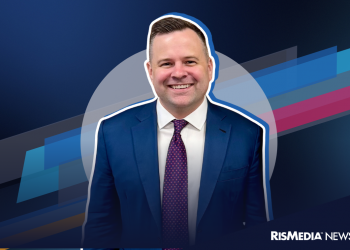 At just above 30 percent, millennials—those aged 18 to 34—now make up the largest segment of buyers. Only 2 percent of REALTORS® are under the age of 30. How can the industry reconcile such a discrepancy?
At just above 30 percent, millennials—those aged 18 to 34—now make up the largest segment of buyers. Only 2 percent of REALTORS® are under the age of 30. How can the industry reconcile such a discrepancy?
As attendees of RISMedia’s recent Broker Best Practices Webinar learned, the solution is a spoke-hub recruitment and retention strategy, centered on—what else?—all things millennial.
“My study groups have shown that millennials would rather work with people close to their own age,” said Vince Leisey, president of Berkshire Hathaway HomeServices Ambassador Real Estate, in the DocuSign-sponsored webinar, “Bringing on the Best: Finding, Hiring and Keeping Your Next Superstars.” “If they’re truly going to be the generation with the greatest buying power…we need to understand how to communicate with them, how to relate to them, and how to attract them to our business.”
One of the key spokes in the wheel? A team-oriented environment.
“Most top-producing agents, especially millennials, want to be surrounded with other top-producing agents they can mastermind with,” said Rick Geha, leader of The Rick Geha Team with Golden State Realty & Leasing and a former recruiter with Century 21 Real Estate and Keller Williams Realty. “If they can find those other top producers in their own office, they are more likely to stay.”
“They are the generation of collaboration, teams, doing things together—completely unlike the baby boomer generation, which was, ‘It’s me against the world…I don’t need anybody else’s help,’” said Leisey, whose three largest teams have leaders averaging 30 years old.
“The thing that I’m noticing about millennials is that they want to quickly get to a life of significance,” added Geha. “My whole younger life, I just wanted a life of success. Guess what? We’ve done a good job of showing millennials that having a life of significance your whole life is possible—you don’t have to wait until after you’ve had success. We want to combine success and significance, and teams are a way to do that.”
Hand-in-hand with that team-friendly setting is coaching. To approach that effectively, Geha relies on a ‘25-35-45’ (or ‘20-30-50’) method that segments agents based on level. Those in the 25/20 range are invited to meet with the broker or office manager for a half-hour each week to assess progress and receive guidance. Those in the 35/30 category are mid-producers, who Geha calls “rising stars,” that have the option to meet with the broker or office manager twice a month. Those in the 45/50 group, or “the bottom,” are encouraged to meet with their broker or office manager once a month.
Leisey calls upon a numerical system, as well, called the ‘1-3-6’ process, to teach new recruits how to set goals and manage their time. The first step, the ‘1,’ requires agents to ask themselves, “What is my one objective?” In the second step, the ‘3,’ agents must ask themselves, “What are the three action steps I need to do every day to achieve that objective?” In the third step, the ‘6,’ agents map out the six activities they need to either stop doing, do less of, or delegate to accomplish their goal.
And if team-centricity and coaching are spokes on the wheel, re-recruiting is what turns it. Geha seeks the buy-in not only from the agent, but also from the agent’s family—a retention strategy that includes an annual event for spouses only.
“We ‘commiserated’ with them, if you’ll excuse that term,” said Geha. “We told them a little bit about the industry, where the market was, what some of the challenges were. We would joke openly, telling them, ‘Anything said here tonight stays here.’ If an agent came home and expressed dissatisfaction, the family would recruit them back into staying.”
“Our belief is that we need to re-recruit the agents that we have first,” Leisey said, “and that if we do a great job of taking 6 million dollar-producers and making them 7 million dollar-producers…everybody in the marketplace takes notice of that. It becomes real easy to recruit.”
The most valuable takeaway from the webinar? Successfully executing these strategies begins and ends with culture, Geha and Leisey agreed.
“If you have incredible culture…you’ll have no problem recruiting new agents, because they’re going to be influenced by you, your disposition and your confidence level,” Geha said.
“Culture is number one in an organization,” said Leisey. “Let’s work with purpose, but let’s also give an environment where they can take a break, have some fun and relax.”
To learn more from the webinar, moderated by Workman Success Systems Founder and CEO Verl Workman, listen to the recording below.











